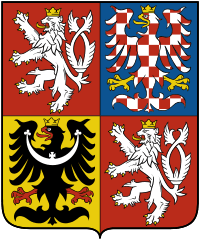iLi Lab of literary criticism

Published
Updated 27-4-2022
- Information update
| Region | Prague |
|---|---|
| Title of the Programme | Culture |
| Title of the Project | iLi Lab of literary criticism |
| Number of the Project | KU-ACC1-005 |
| Project Promoter | Association for iLiteratura |
| Project Partner from Donor State | N/A |
| Status | Estimated project duration: 12/2020 – 06/2021 |
| More Information | Target group: General and professional public Web pages: https://www.iliteratura.cz/Clanek/44163/ililaborator-zahajeni-projektu-literarni-kritiky |
| Total Eligible Costs | 12 490 EUR |
| Grant | 11 241 EUR (90 %) |
Project description:
The project “iLi-Lab of literary criticism” is focused on literary critics – the editorial staff of the iLiteratura.cz journal. Its intention is the professional development of the editors – their further education in some key aspects:
- Art criticism (including its new online forms - podcasting, vlogging);
- Running a cultural institution in the virtual space (online promotion, platform development, possible business models for online cultural media, identity in the online environment);
- Soft skills development (collaboration and communication in the online medium).
We will implement the project as a series of workshops. At least one external expert will be present at each meeting to discuss the chosen topics. He/she will evaluate our literary critical magazine and its future independently and bring new perspectives and experience. Besides improving the quality of our magazine, the project also aims to develop our cooperation with experts from related fields who can enrich cultural criticism with their experience (including, for example, business or IT experts). At the same time, we want to open the Lab to critics working in other media and to open a broader discussion beyond our journal, to discuss the quality of contemporary literary criticism in general.
The output will be: improvement of our work, clarification of the intent of the daily practice of the magazine, discussion about fundamental issues of our future development and about long-term issues (redesign of the website, paid access). As a result, the project will contribute to the quality of literary criticism as such, attract new readers (not only to our literary magazine, but generally to literature) and improve the acceptance of literary criticism (and understanding its role) among the wider public.

